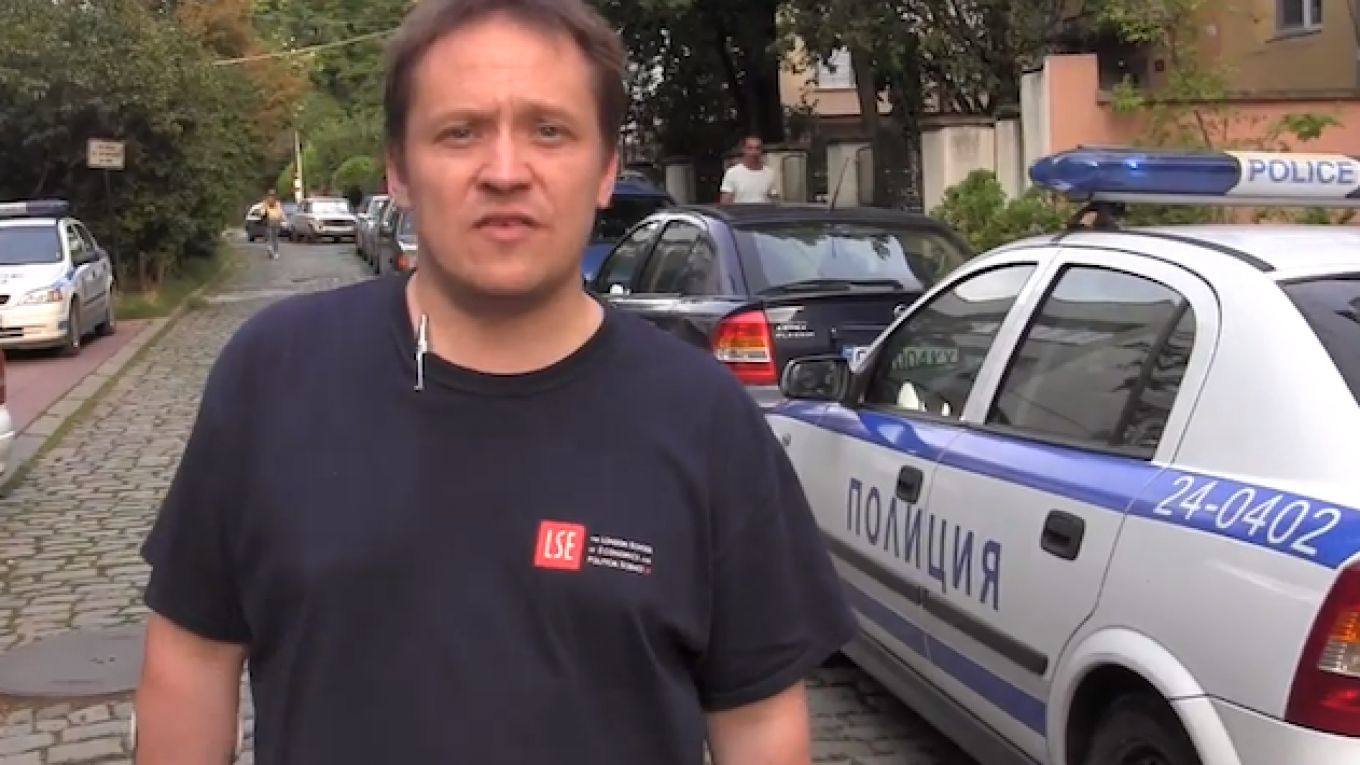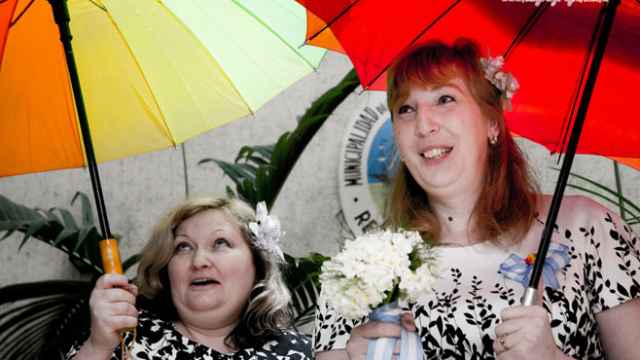A prominent opponent of Russian President Vladimir Putin has requested asylum in Bulgaria, where he is being held under house arrest after Moscow asked for his extradition.
Nikolai Koblyakov asked for asylum on Wednesday, after a Bulgarian court banned him on Monday from leaving his apartment in Sofia until Russia's extradition request could be considered.
Moscow says the request is related to suspicion of fraud dating back to 2004 and 2005. Koblyakov denies the charges and says he fears political persecution by Russian authorities.
Koblyakov, 44, is a dual Russian and French citizen who founded the French non-governmental organization Russie-Libertes, which has staged a series of anti-Putin protests in France.
"Dear friends, yesterday in a letter I asked the President of Bulgaria to grant me a political asylum in the country because of political persecution by the Russian authorities," Koblyakov wrote on his Facebook account.
"The threat for my life, if I am to be returned to Russia, is really big and these are not just my concerns but also of human rights groups like Amnesty International France, ACAT France and Russie-Libertes," he said in another post.
Criticism of Russia's campaign against dissent has grown as Moscow clamps down on activists, journalists and internet users. Koblyakov's detention has sparked protests in Sofia and Paris, where human rights activists have urged the Bulgarian authorities to reject the extradition request.
The president's office confirmed it has received Koblyakov's letter and said its asylum commission will look into it. A Bulgarian court has yet to rule on the extradition request.
"Koblyakov firmly disagrees to be extradited and does not accept the accusations of the Russian authorities," his lawyer, Biliana Kotsakova, said.
He was detained at Sofia Airport on July 29 on an Interpol warrant and held for 72 hours. A Bulgarian court later released him but banned him from leaving the country until an official request from Russia is received.
Bulgaria historically has had strong ties to Moscow, but it has gone along with EU sanctions imposed against Russia over the conflict with Ukraine, saying it is a reliable EU and NATO member.
A Message from The Moscow Times:
Dear readers,
We are facing unprecedented challenges. Russia's Prosecutor General's Office has designated The Moscow Times as an "undesirable" organization, criminalizing our work and putting our staff at risk of prosecution. This follows our earlier unjust labeling as a "foreign agent."
These actions are direct attempts to silence independent journalism in Russia. The authorities claim our work "discredits the decisions of the Russian leadership." We see things differently: we strive to provide accurate, unbiased reporting on Russia.
We, the journalists of The Moscow Times, refuse to be silenced. But to continue our work, we need your help.
Your support, no matter how small, makes a world of difference. If you can, please support us monthly starting from just $2. It's quick to set up, and every contribution makes a significant impact.
By supporting The Moscow Times, you're defending open, independent journalism in the face of repression. Thank you for standing with us.
Remind me later.






